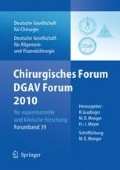Abstract
Introduction: We previously identified the HER2 Oncogene as a potentially promising molecular target for adjuvant therapies in esophageal cancer. Here we describe the development and application of a quantitative genomic qPCR assay to determine HER2 gene copy numbers in single disseminated tumor cells (DTC). Material and Methods: The requirement for the application of our quantitative single cell qPCR assay is the whole genome amplification of single cells following the SCOMP-protocol. The HER2 assay consists of two primers for the HER2 gene and four primers for reference genes located in different genomic regions. To determine the HER2 copy numbers we first correlated the qPCR data of several breast cancer cell lines with results obtained by a standard fluorescence in situ hybridization (FISH) assay to determine HER2 copy numbers. We applied our assay to single cell amplification products from DTCs that were detected in a collective of 142 esophageal cancer patients with clinical follow-up data. Results: The qPCR data of single cell amplification products correlated significantly with HER2 FISH data in different breast cancer cell lines with different HER2 amplification levels (correlation coefficient of 0,96). When we applied our assay to single cell amplification products from DTCs that were detected in a collective of 142 esophageal cancer patients, we found that the calculated copy number of several DTCs exceeded that of 20 tested single cell amplification products from diploid mononuclear cells. Interestingly, HER2 copy numbers of some esophageal DTC were significantly higher than those observed in the tested model breast cancer cell lines (e. g. SKBR-3 or BT474). HER2 amplifications in single DTC conferred a strong prognostic impact on survival (p = 0.008). Furthermore, we observed a significant association between the shortness of survival and the extent of increased HER2 copy numbers (p = 0.021). Conclusion: The HER2 amplification in DTC is strongly linked to systemic esophageal cancer progression and should represent a suitable therapeutic target. Our single cell qPCR assay provides an excellent tool to adjust HER2 directed therapies directly on the actual targets for adjuvant systemic therapies, the disseminated tumor cells.
Access this chapter
Tax calculation will be finalised at checkout
Purchases are for personal use only
Author information
Authors and Affiliations
Editor information
Editors and Affiliations
Rights and permissions
Copyright information
© 2010 Springer-Verlag Berlin Heidelberg
About this paper
Cite this paper
Stoecklein, N. et al. (2010). Hohe HER2 Gen-Kopienzahlen bei einzelnen disseminierten Tumorzellen sind beim Ösophaguskarzinom mit einem schlechten Überleben korreliert. In: Gradinger, R., Menger, M., Meyer, HJ. (eds) Chirurgisches Forum und DGAV Forum 2010. Deutsche Gesellschaft für Chirurgie, vol 39. Springer, Berlin, Heidelberg. https://doi.org/10.1007/978-3-642-12192-0_36
Download citation
DOI: https://doi.org/10.1007/978-3-642-12192-0_36
Publisher Name: Springer, Berlin, Heidelberg
Print ISBN: 978-3-642-12191-3
Online ISBN: 978-3-642-12192-0
eBook Packages: Medicine (German Language)

